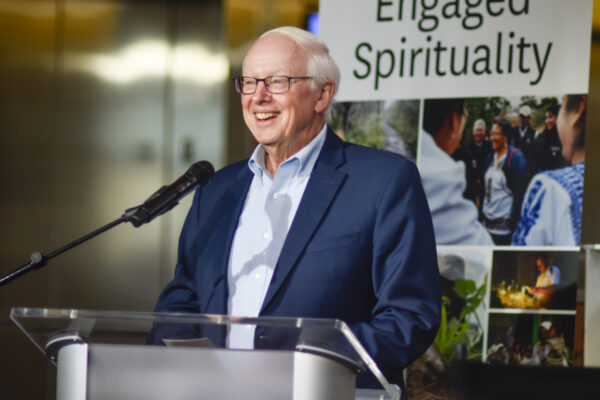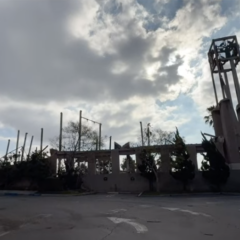The USC Center for Religion and Civic Culture celebrates the long and productive career of its co-founder Donald E. Miller upon his retirement from the center. The Leonard K. Firestone Professor of Religion, Miller spent more than 50 years on the faculty of the University of Southern California, where he entered as undergraduate student in 1964 and later earned a PhD in social ethics.
“It has been a great 50-year ride at USC, and CRCC has been the most important element,” Miller reflected. “I have had an absolutely “free leash” at USC to invent, create and give birth to new ideas. For that I am extremely grateful. It has been transformative for me in many ways.”
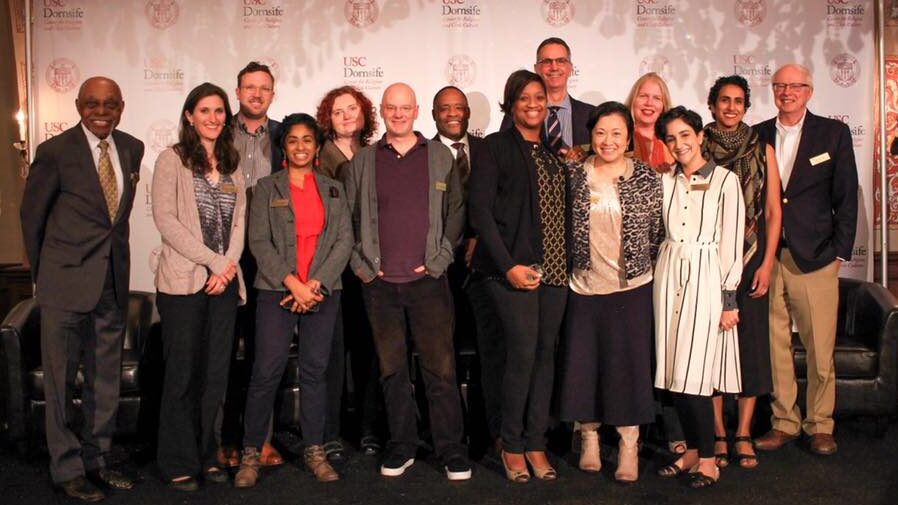
The Center for Religion and Civic Culture, or CRCC, grew out of a research project that Miller undertook with fellow religion professor John Orr on the role of religious organizations responding to Los Angeles’ civil unrest in 1992. After that project, Miller and Orr co-founded CRCC in 1996 as a place that brought scholars together with policy-makers, religious community leaders and foundations interested in creating positive social change in their communities.
“We are grateful to Don for imbuing his creativity and entrepreneurial spirit into CRCC, so that it can continue to be a place where the academy and community come together and learn from one another,” said Richard Flory, CRCC’s executive director. “I also am grateful for his friendship and the influence he has had on me personally. After grad school, he encouraged my ideas and offered me opportunities I would never have had otherwise–not the least of which has been working with him at CRCC for the last 17 years.”
Miller served as the executive director of the center until 2015, when he also retired from teaching at USC. As a leader, he was a champion for others, mentoring and offering opportunities to graduate students, research associates and colleagues.
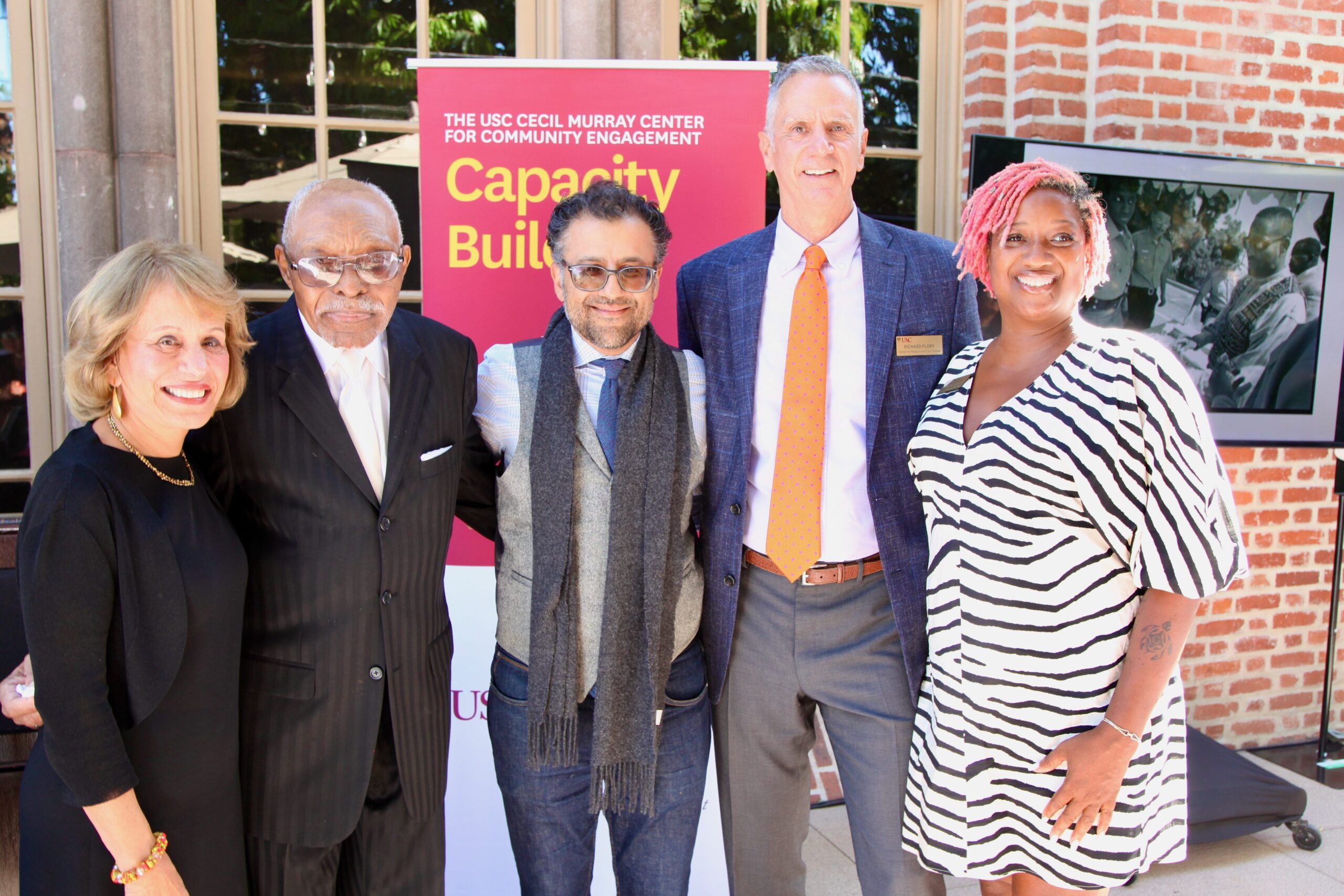
“The only reason I’m at USC is because Don recruited me and advocated for me, and when I got here, I realized there were dozens of others who had the same story as I did because of Don,” said Varun Soni, USC Dean of Religious and Spiritual Life. “In South Africa, there is Bantu term that has really inspired my family there – Ubuntu – which means ‘I am because we are.’ I feel the inverse is true with Don Miller – we are because he is.”
Miller encouraged his colleagues to think expansively about what they could do. He was known for saying in meetings, “this might not be a good idea, but….”
These ideas often became projects small and large, from evaluations of local organizations’ work in the community to a career highlight, as he recalls: “Opening my mail on a fishing boat in Alaska and receiving notice from the Lilly Endowment that they were funding my proposal for the book that later became Reinventing American Protestantism.
Read more about how fishing tied into his career in a 1997 Trojan Family Magazine profile.
CRCC became a Pew Center for Excellence under his tenure, allowing the center to encourage cross-disciplinary engagement on religion across USC. He also led the $7 million Pentecostal and Charismatic Research Initiative, funding scholarship beyond the university, and the evaluation of the Conrad N. Hilton Foundation’s Catholic Sisters Initiative. Both of these projects allowed him to travel extensively.
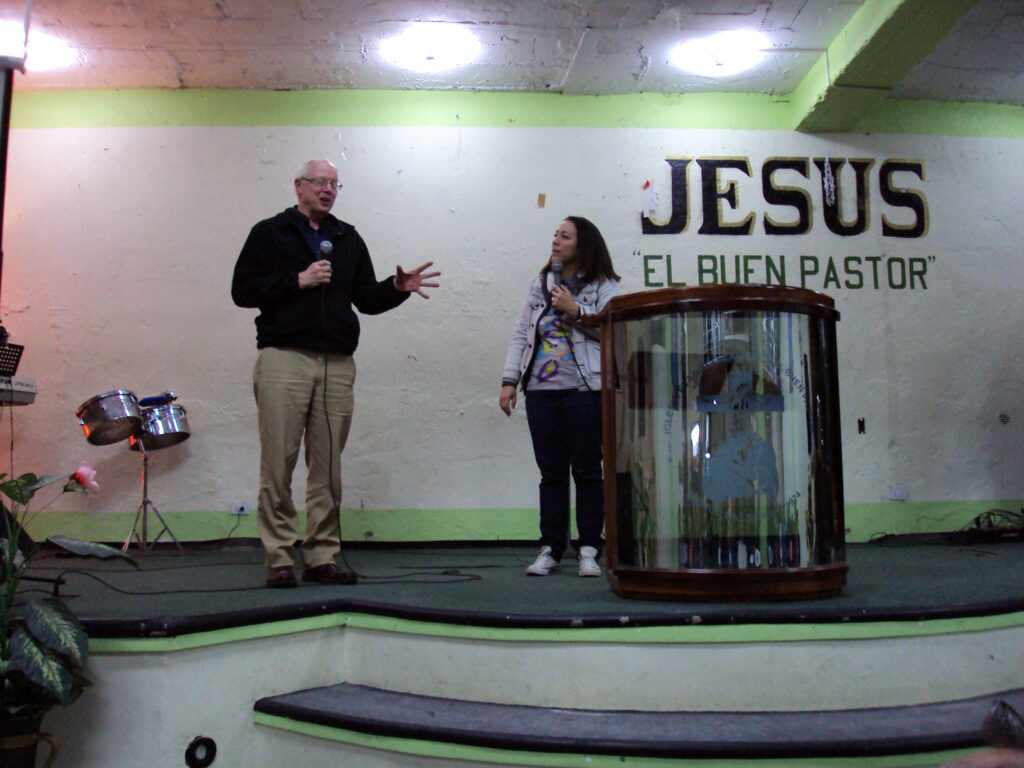
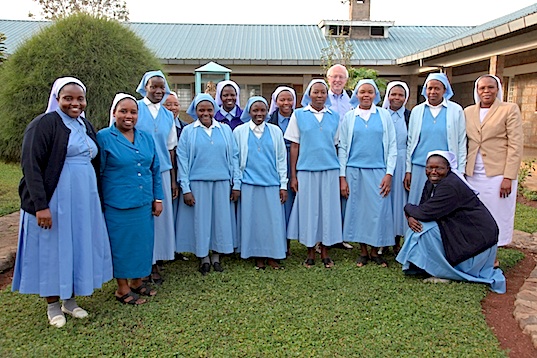
“In Brazil, I remember being terrified that my demons might be identified and cast out in a Pentecostal church in Sao Paulo,” Miller said. “When I traveled all over Africa with Sister Jane Wakahiu for our work with the Hilton Foundation, I always stayed in convents. Both projects opened new worlds to me.”
Miller is the author or editor of 11 academic books and numerous articles. His first book, The Case for Liberal Christianity, had a cult following in the early 1980s. He wrote two oral histories on the Armenian and Rwandan genocides, both with his wife Lorna Touryan Miller. He also wrote or edited books on global Pentecostalism and young adult religion.
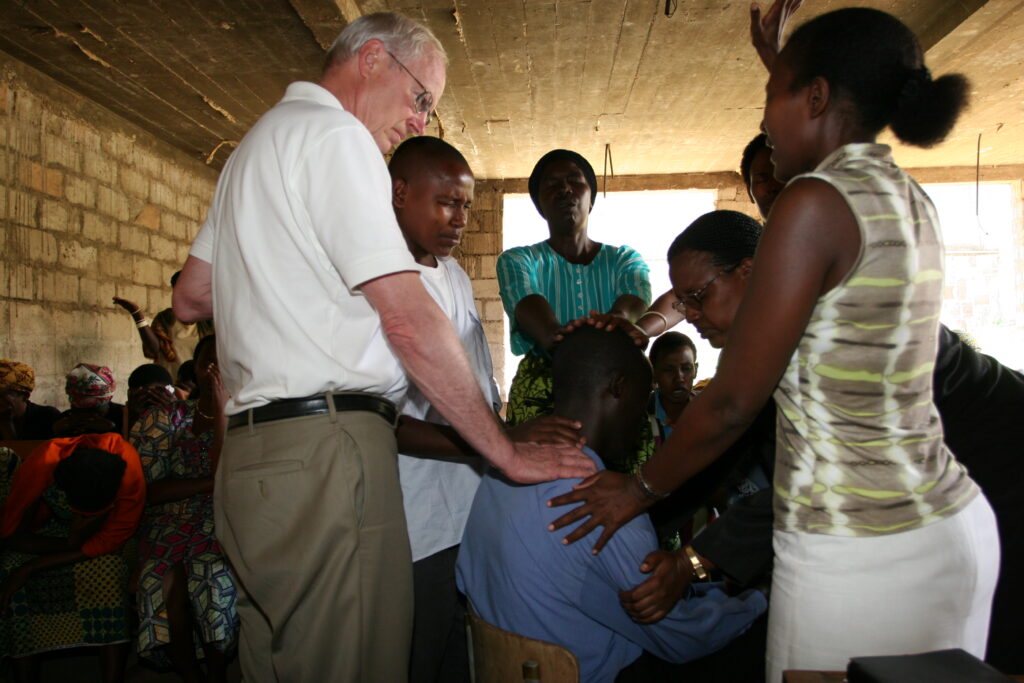
His research in Los Angeles, however, might be among his most impactful. Meeting the Rev. Dr. Cecil L. “Chip” Murray in his office at First African Methodist Episcopal (FAME) Church in Los Angeles shortly after the 1992 civil unrest led to a personal relationship and professional collaboration. Rev. Murray officiated Miller’s daughter’s wedding and baptized his first grandson. At the USC provost’s request, Miller invited Rev. Murray to join USC in 2004, after the faith leader’s retirement as FAME’s pastor. Through CRCC, Rev. Murray trained 1,000 faith leaders in civic engagement and economic empowerment work.
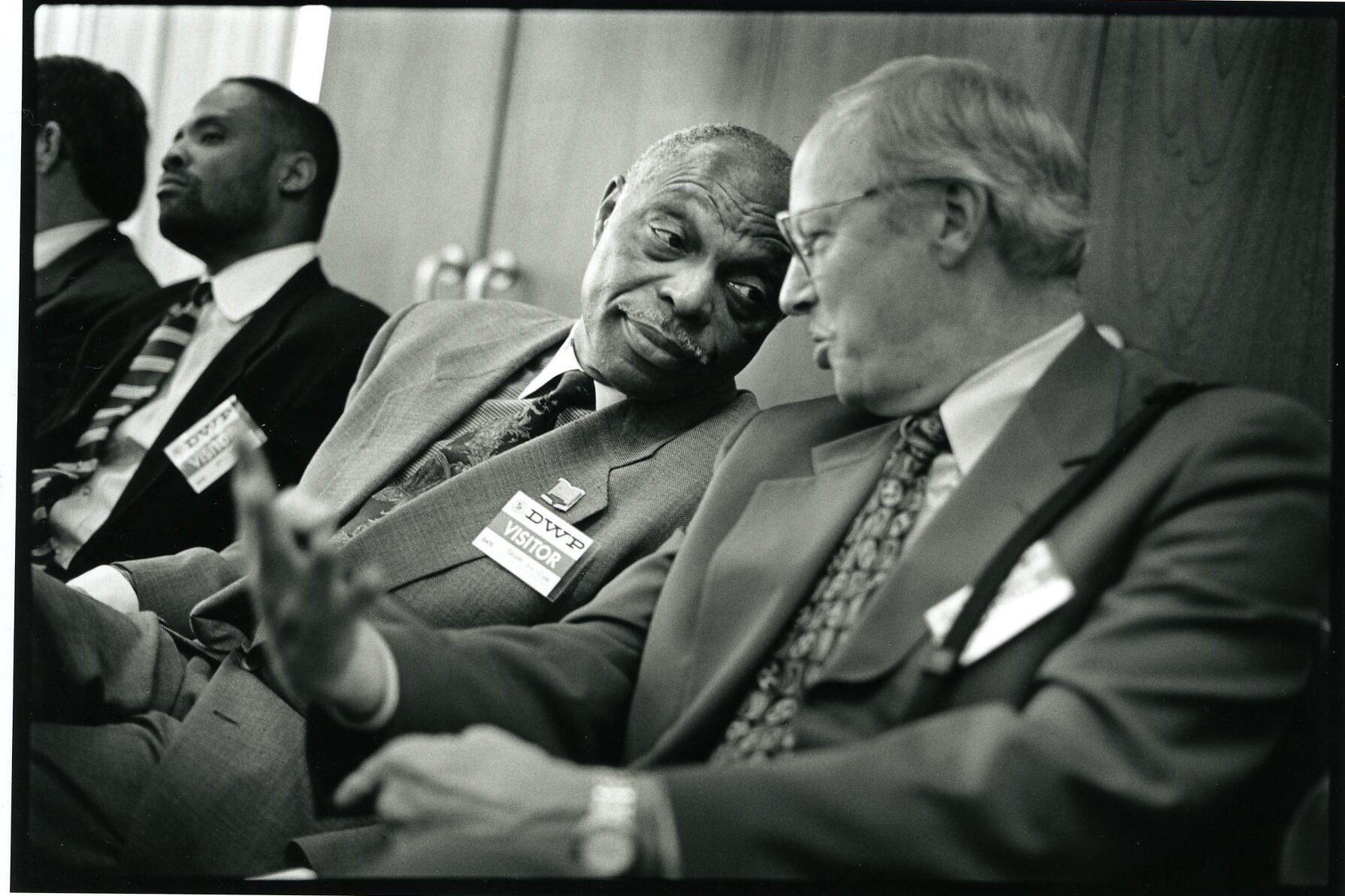
Miller showed his commitment to making research accessible beyond the ivy towers of academia through such community programming, as well as by producing public scholarship. He has penned opinion pieces, produced videos, created magazine-style reports and organized exhibits.
An exhibit on the Armenian genocide was presented in the U.S. Capitol Rotunda, where it was seen by tens of thousands of people. He worked with renowned photographer Jerry Berndt on exhibits on “The Orphans of Rwanda” and “The Soul of Los Angeles,” shown at dozens of venues.
This year, he led the development of a multimedia exhibit hosted at USC Annenberg School for Communications and Journalism: “Stories of Social Change: Spirituality in Action.”
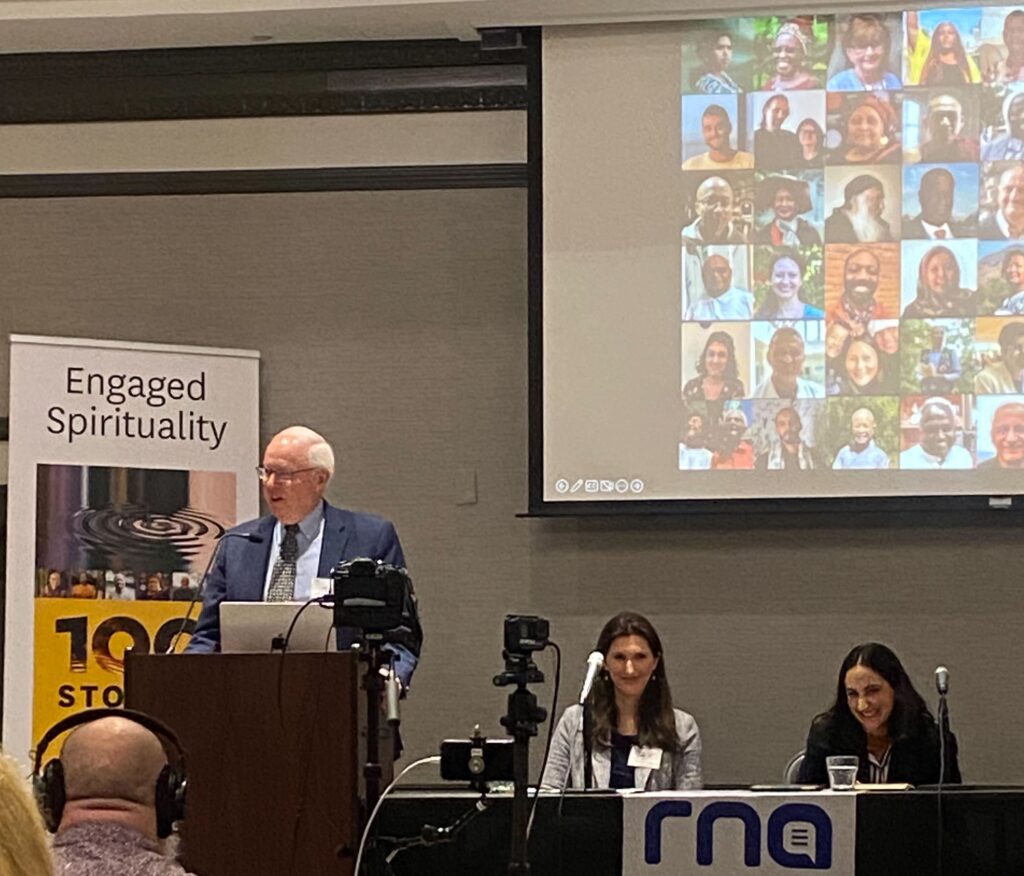
The exhibit was the result of “Spiritual Exemplars: A Global Project on Engaged Spirituality,” Miller’s “encore career” project. “While images of sitting on the beach or playing golf may seem enticing, I believe the leisure-based notion of retirement is both empty and ultimately unfulfilling,” Miller wrote back in 2016, after resigning as CRCC’s executive director.
Combining his creativity and desire for research to reach beyond academia, this project commissioned journalists to profile “spiritual exemplars” working on social issues around the world. The project also allowed him to travel to meet new humanitarians and reconnect with people he had studied earlier in his career.
Studying religion, genocide, civil unrest and other humanitarian emergencies has given Miller a cynical side. At the same time, the people he has met throughout his career instill in him a sense of hope. As Miller recently wrote, “profound meaning comes in uniting with a purpose higher than oneself.”
While the conclusion of the Spiritual Exemplars Project marks the end of Miller’s time at CRCC, he remains committed to writing a book from the project. Miller continues to serve as a member of the Templeton Religion Trust’s steering committee, and he plans to devote more to his children and grandchildren, hoping to help them think creatively about confronting the challenges of our time.
